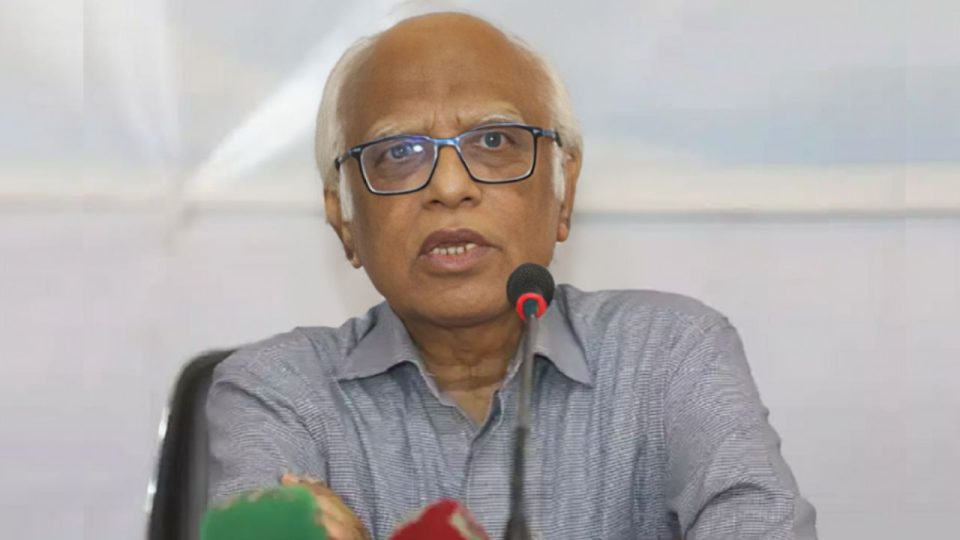News Flash

DHAKA, Sept 1, 2025 (BSS) - Planning Adviser Dr. Wahiduddin Mahmud has said that there must be a universal social protection system for all people in the country.
"It's now time to move forward," he added.
The Planning Adviser made these remarks while addressing the inaugural
session of a three-day event titled "National Conference on Social Protection 2025" held at the China-Bangladesh Friendship Conference Centre in the capital today.
"Bangladesh is no longer a very poor country, we're on the path to becoming an upper middle-income nation. So, we can no longer make excuses that we can't ensure a minimum level of social protection for all. Therefore, education, healthcare, and basic social security must be guaranteed," he said.
Liberation War Affairs and Disaster Management and Relief Adviser Faruk E Azam (Bir Protik) attended the event as special guest.
Other distinguished participants included Senior Secretary of the Ministry of Public Administration Dr Md Mokhles ur Rahman, Secretary of Coordination and Reforms of the Cabinet Division Zaheda Parveen; Member of the General Economics Division (GED) of the Planning Commission Dr. Monzur Hossain; UNDP Resident Representative Stefan Liller, Ambassador and Head of Delegation of EU to Bangladesh Michael Miller and Deputy High Commissioner of Australia in Dhaka Clinton Pobke.
Cabinet Secretary Dr. Sheikh Abdur Rashid presided over the event while
Additional Secretary Md. Khaled Hasan presented the keynote paper.
The Planning Adviser said a large portion of Bangladesh's social protection programmes do not actually reach to the genuine beneficiaries.
"Social protection programs are meant to assist the poor, marginalized, and helpless population. But in reality, many who don't genuinely need support were included in the lists by leveraging political identity or influence. As a result, the true beneficiaries are left out," he continued.
The adviser emphasized that the role of local government is crucial in
preparing accurate beneficiary lists. However, due to the absence of an
effective local government, the process has become complicated.
He said although digitization work has begun at the upazila and union levels, it is still not full-fledged. Under the circumstances, the interim government is planning to establish a central register at the national level, he added.
For Bangladesh, social protection is not only about financial assistance but also about the path for human justice, equity, and inclusive development, Dr Mahmud further said.
To make this system effective, he said it is high time to exclude the ghost and politically influenced beneficiaries and thus to include eligible people.
The Planning Adviser noted that due to weak revenue policies, the
government's income always falls short of expenditure.
As a result, the government has to depend on borrowings to cover the
expenditure on development projects and social protection, he added.
He also suggested for taking projects considering the diverse causes of
poverty such as families with too many dependents, households where the sole earner is sick or families that have working-age members but no employment opportunities.
The conference was informed that in the fiscal year 2025-26, a total of Taka 1,16,731 crore were allocated for the social safety nets, which is about 14.78 percent of the total budget and 1.87 percent of GDP.
This allocation will include social assistance, social insurance, labor-
market-based programmes, and other services operated through various
ministries.
The programmes will cover the elderly, persons with disabilities, children, low-income families and populations affected by climate or economic shocks.